Myanmar, following the three and half years of civil war transformed by people’s uprising, is in a very dire situation as over 3.1 million people have been displaced; more than 5,600 civilians have been killed by military junta forces; 18.6 million Myanmar people are in urgent need of humanitarian assistance; over 20,000 political prisoners are behind bars; and 13.3 million people are facing emergency levels of food insecurity, according to “End of Mission Statement, Tom Andrews UN Special Rapporteur on the situation of human rights in Myanmar,” published on 10 Oct 2024.
These have all come about ever since the military coup in February 2021, followed by the people’s resistance against the military junta or State Administration Council (SAC) due to its barbaric and tyrannical, oppressive rule.
Lately ASEAN has vowed to tackle the Myanmar’s civil war situation just like the way it has undertaken since 2021 that is centered on 5-Point Consensus (5PC) and parallel to it China has also been actively involved in trying to end the conflict quite coercively, according to its prescribed demand, which can be seen as a direct interference of a country’s internal affairs.
First, let us look at how the ASEAN is coping with after more than three years of tackling the issue.
ASEAN 5PC
During the ASEAN Chairmanship of Brunei Darussalam 2021, Chairmanship of Cambodia 2022, Chairmanship of Indonesia 2023, and Chairmanship of Lao PDR 2024 tenures no progress under the so-called 5-Points Consensus (5PC) has even been made.
According to Dr. Abdul Rahman Yaacob, a researcher specializing in Southeast Asian affairs at the Lowy Institute, which is an independent research group based in Sydney, Australia told the VOA Burmese Section on 16 October 2024 in an interview when asked about if ASEAN is making progress in diplomatic arena concerning Myanmar’s conflict answered: “It’s sad. I don’t think the ASEAN summit can bring real progress. ASEAN’s main approach is still based on 5PC. I don’t think there will be any major success because the Myanmar coup army is defiant and does not follow it.”
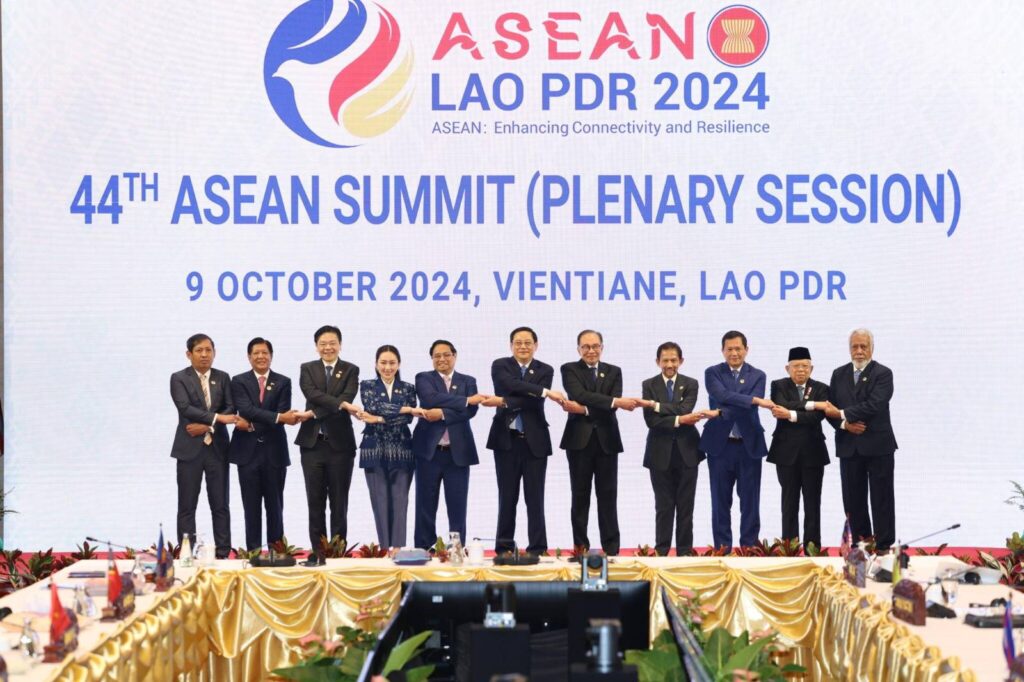
He said that the process of all ASEAN member countries agreeing on the issue of Myanmar has not progressed, so it needs to be more effective.
He explained: “I think ASEAN as a whole needs to rethink its approach. The first is that the 5PC does not work, and the second is that Thailand, which shares a long border with Myanmar, feels that they have been left out of the decision-making process regarding Myanmar. ASEAN currently has established a tripartite ‘Troika’ mechanism, consisting of the first and next adjacent rotating chairmen. So, now Laos, Indonesia and Malaysia will have to deal with Myanmar issue by engaging the Myanmar coup army.”
“But then, where is the role of Thailand? That’s the question that some of Thailand’s policy makers keep asking me. They question the fact that their views are not taken into account despite the fact that they share a long border with Myanmar. So I think ASEAN needs to change its approach. Also, the relevant group of countries approach should be adopted. What this means is that in the case of Myanmar, consensus decision-making process should no longer be held.”
“A small community of related countries with a genuine interest in solving the Myanmar crisis should be formed. Thailand must also be included in it. I think this would be much better than a decision-making process involving all 10 ASEAN countries. Because some countries have no interest in Myanmar affairs at all.”
The ASEAN 5PC, which the military coup leader Gen Min Aung Hlaing promised to adhere but never follow or implement but indulge only in all-out war against the whole country are:
- An immediate end to violence in the country;
- Dialogue among all parties;
- The appointment of a special envoy;
- Humanitarian assistance by ASEAN; and
- The special envoy’s visit to Myanmar to meet with all parties.
The latest ASEAN decisions include to “maintain the 5PC as the main reference and the peace resolution should be Myanmar-owned and -led; urge all stakeholders to de-escalate violence; continue engagements with all relevant stakeholders in Myanmar by the Special Envoy of the ASEAN Chair to build trust toward convening an inclusive national dialogue; expedite ASEAN’s on-going efforts and other relevant approaches led by the ASEAN Chair, including through the informal consultation consisting of current, previous, and incoming Chairs of ASEAN, and an extended informal consultation with participation of other interested ASEAN Member States,” including the underlined, importance of ASEAN Member States being informed and engaged in such processes, among others, according to ASEAN Leaders’ Review and Decision on the Implementation of the Five-Point Consensus, Vientiane, Lao PDR, 9 October 2024.
Jason Tower, who led the USIP’s Burma Program, in a recent discussion posted USIP site on 10 October 2024 said: “The summit illustrated the ongoing failure of ASEAN to make any progress in compelling the Myanmar military to end violence against the people, to release political prisoners and to permit humanitarian access.”
In the same report, he outlined how Laos has been reluctant, uninterested and unmotivated to tackle the Myanmar or Burma conflict issue, just like all of its predecessors, as follows: “Under Laos’s ASEAN leadership this year, the bloc’s position on the Myanmar issue has become unclear, and political will to push the military to end violence and take genuine action to resume political reforms has lessened. As the head of ASEAN last year, Indonesia introduced several innovative approaches, establishing an envoy’s office and platforms for engagement with Myanmar’s (ethnic armed organizations) EAOs. Laos has not been comfortable spearheading a process to address Myanmar’s crisis. It has instead looked to Thailand and China to provide leadership. At this year’s summit, Thailand offered to host an informal dialogue to address the crisis, but domestic political instability has made it difficult to develop and implement a strategy. Meanwhile, China has simply pushed Laos to engage more closely with the military regime. Indonesia has tried to continue involvement, notably by providing space for Myanmar’s resistance actors to convene, including with various international envoys and mediators.”
With the in-coming Malaysia as new ASEAN Chairmanship there may be some hope that PM Anwar bin Ibrahim will have more incentive to do more than his predecessors as his country has to harbor thousands of Rohingya and Burmese refugees for years now.
However, the approach of all-inclusive dialogue among stakeholders will be the cornerstone of ASEAN concerning Myanmar.
China’s lopsided approach
China is a dual governing system and as such the government is an outward visible face, while the China Communist Party (CCP) is behind and also above the government, with more than 85 million members which defines the political class in today’s China and functions as a leadership oligarchy, according to John G. Blair in its academic paper titled, “The dual governing system of the People’s Republic of China,” first published on 18 February 2016.
According to Statista of 19 July 2024, latest CCP membership count is 99 million.
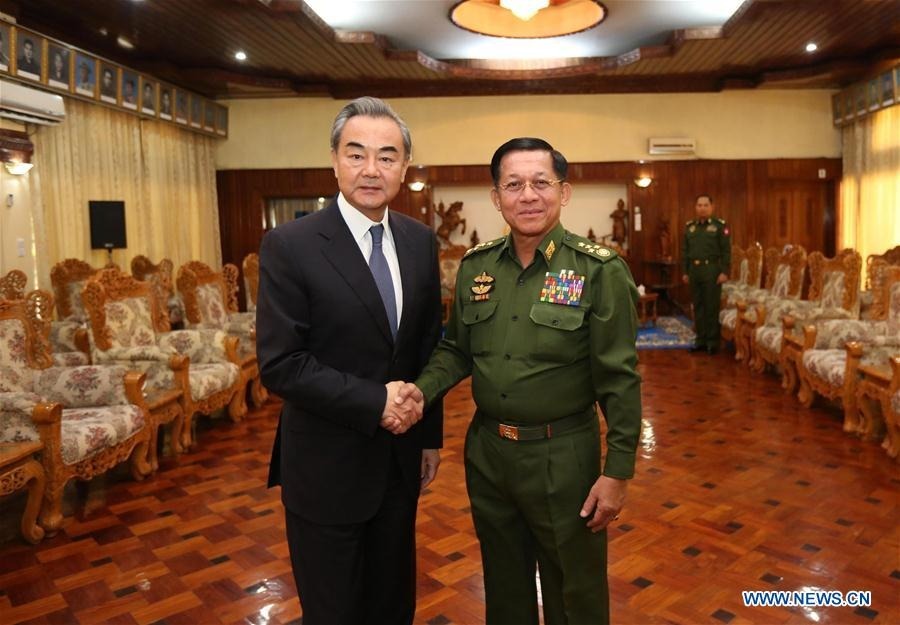
Thus it is nothing new that it employs multi-engagement approach as a strategy in Myanmar. In other words, it deals and communicate with parties and organizations on party-to-party basis, such as the political parties and EAOs in Myanmar, and with the junta on government-to-government basis.
China actually backed the Operation 1027 of Three Brotherhood Alliance (3BHA), the Arakan Army (AA), Myanmar National Democratic Alliance Army (MNDAA) and Ta’ang National Liberation Army (TNLA), at the end of 2023 to tackle the cyberfraud operations in Kokang and elsewhere in Myanmar, as the junta was not cooperating due to its benefits received from the illegal operations. But when MNDAA and TNLA overran almost all the junta military outposts and North East Military Command in Lashio, during the second phase of Operation 1027, China made a 180 degree turn and ordered them to stop the offensives and withdraw back to their original stomping grounds.
In the process it reprimanded first the TNLA, then MNDAA followed by the United Wa State Army (UWSA) and lastly the Kachin Independence Army (KIA).
The TNLA was issued an ultimatum from Ruli Town Security Committee to stop the offensive or be “responsible for the consequences,” according to TNLA spokesperson at the end of August.
The MNDAA was ordered to withdraw from Lashio and blockage to its Kokang Self-Administered Zone was implemented. Consequently, MNDAA issued two statements that it won’t attack Mandalay and Taunggyi and has nothing to do with the National Unity Government (NUG) in the first statement in September; and that its personnel are not allowed to give interview individually or on behalf of the organization, no participation in any Myanmar meeting forum, and restriction of the travel aboard, especially to US and West, in the second statement during second week of October. However, at this writing it has not withdrawn back from Lashio and it is not clear if China will be satisfied with what MNDAA has undertaken so far.
On 27 August the UWSA was summoned to Pu’er City, Yunan by China and told not to let anything pass through its territory to Kokang area, or it will face the blockage consequences like the TNLA and MNDAA.
The KIA on 17 October met Chinese counterparts in China where it was told to stop the offensives against the junta but as it didn’t obey and recently seized Pan Wah City bordering China in northeast of Kachin State, at least three Chinese border gates, including Laiza KIA headquarters, have been closed.
In short, China wants ceasefire by all means countrywide and especially those territories it shares border with Myanmar in the first place. It also openly endorsed the junta’s recent census taking and the eventual nationwide elections in November 2025, as planned by the junta. In other words, it sees election as a way out for the junta and as well for the country, so that it could go on with its economic plans of Belt and Road Initiative (BRI) and also the protection of other mega projects that it already have in place.
Perspectives
The people of Myanmar and stakeholders are now offered a choice of all-inclusive dialogue to end the civil war by ASEAN, while going through the junta’s led nationwide election endorsed by China to resolve the conflict is another venue for consideration.
First let us dwell on ASEAN 5PC aimed at all-inclusive dialogue. The proposition is hard to materialize as the junta isn’t adhering to any point of the 5PC and is bent on waging the war with the hope of reestablishing its supremacy again countrywide. Apart from that the ASEAN members are divided on how to deal with the Myanmar issue, the insistence of comprehensive consensus agreement by all members in any decision-making may be hard to achieve. In addition some countries are for engagement with anti-junta groups while other feared that it will amount to interference of a member country internal affairs, which is also the cornerstone of the ASEAN. For example Thailand, Indonesia and Malaysia are having informal dialogues with the anti-junta resistance groups, while others are shunning it. Moreover, Laos, Cambodia and Indonesia were having their own approaches without other members’ consent.
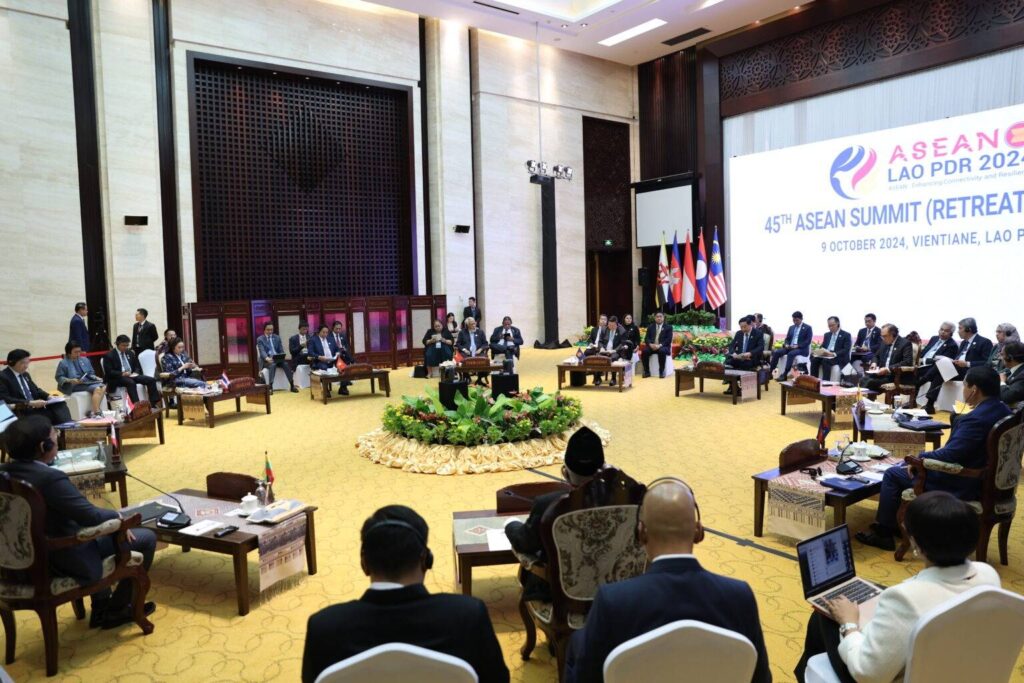
As the end of the year is approaching with Malaysia readying to take the lead as ASEAN Chairmanship, Thailand is gearing to hold informal meeting for all Myanmar’s stakeholders, which are all in the limbo for now.
Now let us go to the planned junta’s nationwide election which is backed by China. The prospect of ever achieving a passable, valid election is very bleak, if not at all impossible. First the junta controls less than fifty percent of the country’s territories, which means it can’t be countrywide in any sense. Second the imagination that China would be able to persuade the EAOs to cooperate in junta-led election won’t happen, if one looks at the heightening offensives in many parts of the country despite China’s pressure for ceasefire. The parallel NUG outrightly rejected China’s demand and vowed to carry on with the revolution to fulfill the people’s aspirations of uprooting the military dictatorship system and establishment of a federal democratic union. The TNLA spokesperson also said dialogue would be possible only if the junta accepts to leave political arena for good and yields to transitional justice for its human rights violations against the people.
In sum, ASEAN’s all-inclusive dialogue proposal and as well, China’s endorsed junta election to resolve the conflict and end the civil war won’t be feasible in the near future, given the existing convoluted Myanmar’s present political atmosphere.





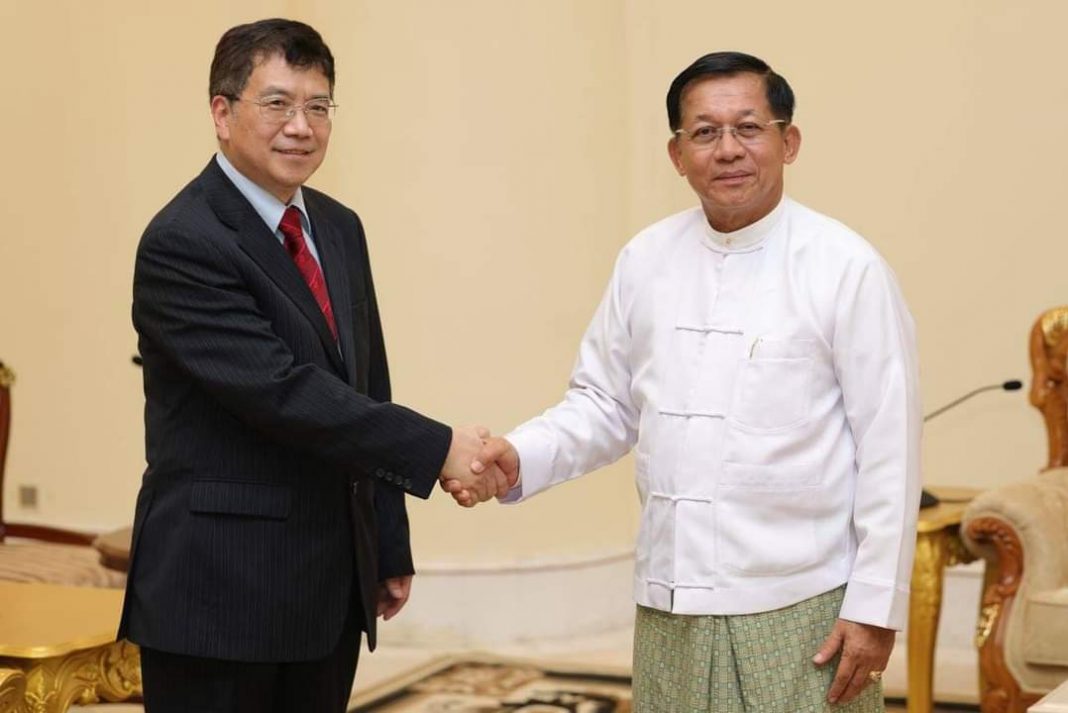
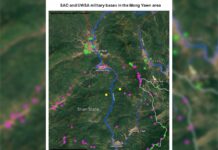
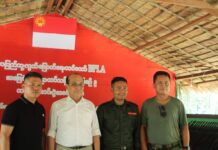
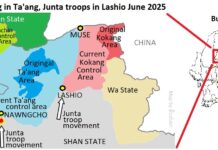
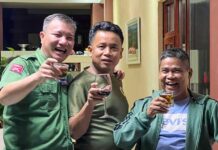
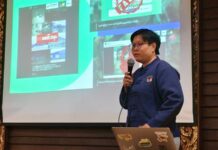






Leave a Comments